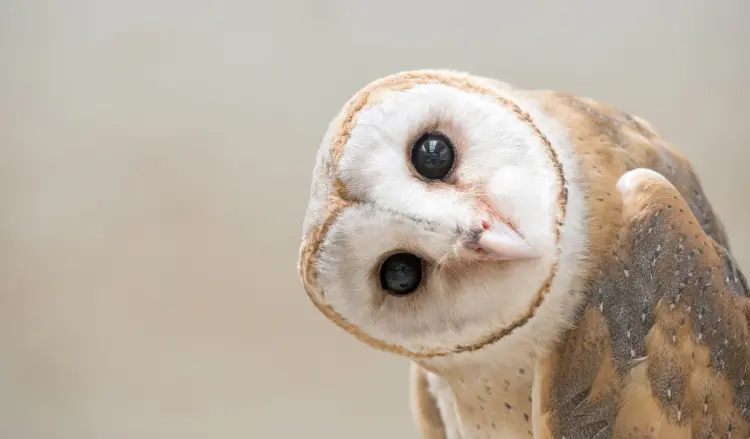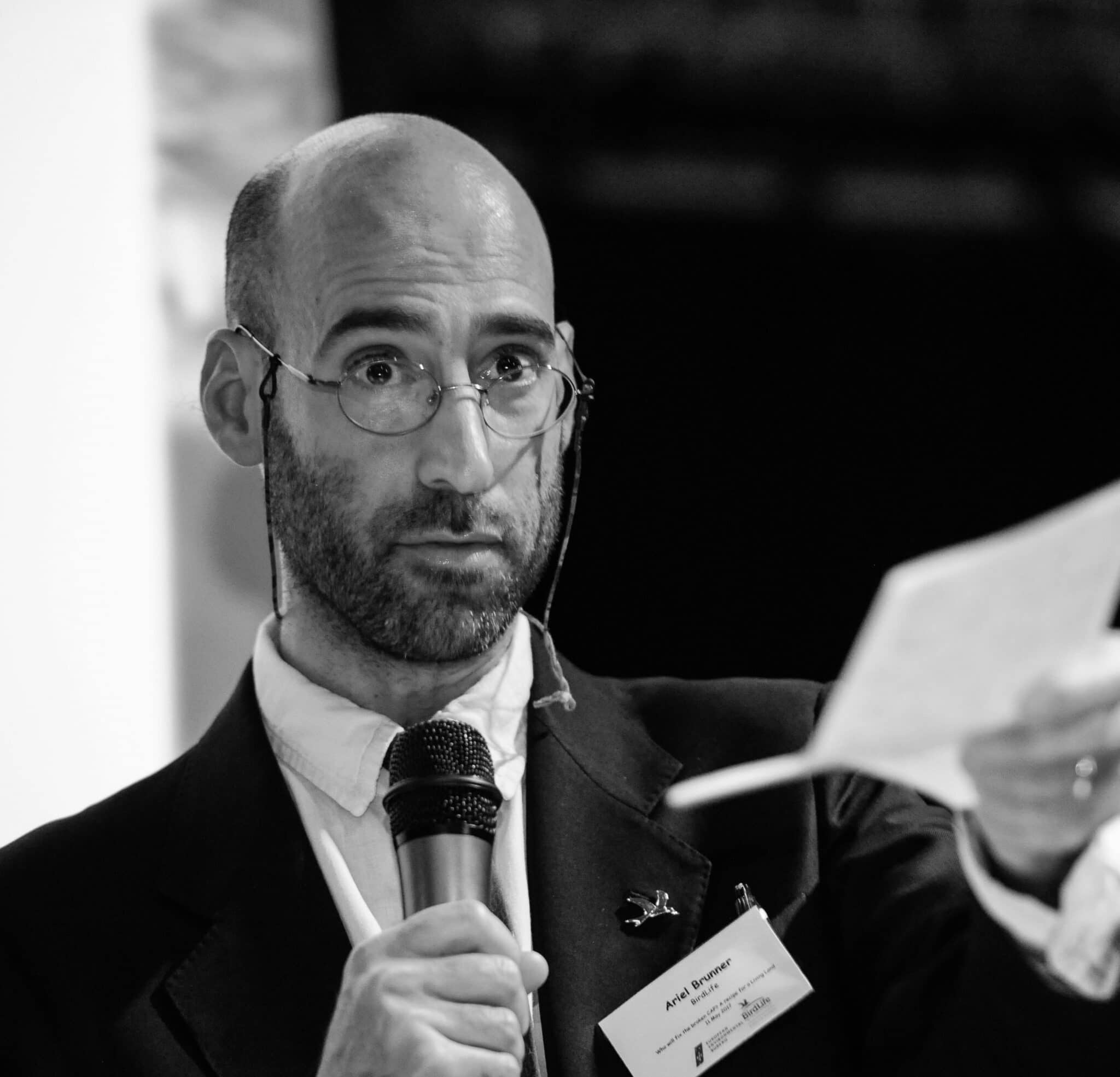Why we stand with Ukraine

Patricia Zurita, Former BirdLife CEO, and Ariel Brunner, European & Central Asian policy chief, reflect.
Statement by former BirdLife CEO Patricia Zurita
“We have all been shocked to the core and angered by the brutal invasion of free Ukraine by the Russian state. Our thoughts are with all caught up in the conflict in Ukraine including those who work for and with our partner the Ukrainian Society for the Protection of Birds. As a global organisation, we have been grappling with this and other threats we and our partners face as we battle to save nature. As Ariel Brunner, who is Senior Head of Policy for our European & Central Asian division writes so beautifully below, to have any chance of tackling the nature and climate emergency we need peaceful cooperation that thrives on diversity, the rule of law, a healthy civil society, and a free press. All of this is at stake. This is why we #StandWithUkraine and demand the Russian leader #StoptheWar”.
Humanity at the Abyss
I grew up in a region ravaged by ethnic and religious conflicts and have chosen to dedicate my life to saving nature from humanity’s over reach, and saving humanity from its own self destructive war on nature. I work for an organisation that prides itself for its neutrality and its ability to bring together grassroots organisations across borders, cultures and sometimes violent political divides. BirdLife doesn’t “do politics”, but it speaks up for the voiceless natural world.
I also come from a family ravaged by the violence that ethno-nationalism and militaristic ideologies have brought to Europe in the past century. I grew up assuming that those evil spirits had been banished. I thought they might linger in corners of society and in some unfortunate regions, but I felt humanity overall had learned its lesson and moved on. But during the last two decades I have watched with horror as the old monsters re-emerged from their swamps and took a new lease on life. All over the world, democracy, the rule of law, a free press, freedom of association and human rights have been under renewed assault. Demagogues have been harnessing fear of the other. They have been undermining truth, sowing discord and demolishing the foundations of peaceful coexistence, inside and between countries. The violent aggression against Ukraine seems to me like a turning point. The aggressor is a regime that has all but liquidated civil society and has made unprecedented investments in undermining truth and people’s trust in facts and institutions. Many of our most basic democratic assumptions, values and practices are under unprecedented assault.
Science tells us that humanity is on the edge of an ecological abyss. It tells us that we can still save ourselves and the natural world we love and depend on, but that time is running out. But science, and indeed facts, are increasingly under attack in almost every country. Our efforts to address the crisis depend on the freedom to discuss it and on a healthy civil society ecosystem: NGOs, free media, accountable politicians, scientists that can speak openly. But civil society is being shut down in one country after another. Some of our own Partners are being closed down on trumped up charges, or prevented from carrying their work out in more subtle ways. Ultimately, humanity living in peace with the rest of the biosphere requires humanity to live in peace with itself, and to voluntarily submit to a complex set of rules that guarantee an equitable and wise management of fragile global ecosystems. But more and more governments see peace and the rule of law as expendable the moment they block their ambitions.
This presents us with an unprecedented dilemma. A nature conservation organisation can and must stay neutral in disputes between countries, political factions, ideologies, ethnic groups or religions. But can we stay neutral in the face of the systematic destruction of civil society? We cannot even exist, let alone pursue our mission if totalitarianism wins. Can we stay neutral in the face of systems that deny the existence of objective facts, let alone scientific evidence? If facts are just opinions, on what basis are we arguing for deep changes to human behaviour and economy? Can we stay neutral when even the idea of a rules based society is being challenged and violence is offered as a viable alternative? Can there be an ecologically balanced society that is not rule based? Can we argue for an end of violence against nature if violence between humans is again accepted?
These are hard questions. All the harder for an inclusive and deeply diverse network that includes people of so many origins, orientations, cultures and conditions. Our democratically agreed policies require us to stay out of “politics”, but pursuing our mission is eminently political. It is about how we run our one global, and our many local “polis”, the city, the public space, society. It cannot be done in the absence of at least some elements of those foundational principles: science and facts, a rules based society that is open and tolerant of diversity and peaceful cooperation. When these are attacked, we cannot stay neutral. We must speak up. We need to call on women and men of good will, whoever and wherever they are, to react before it’s too late. We have our world to lose.
Lead image designed by Natalia Alimova
“I work for an organisation that prides itself for its neutrality and its ability to bring together grassroots organisations across borders, cultures and sometimes violent political divides. BirdLife doesn’t “do politics”, but it speaks up for the voiceless natural world.”Ariel Brunner, Senior Head of Policy, BirdLife Europe & Central Asia

“The UN Charter has been challenged in the past, but it has stood firm on the side of peace, security, development, justice, international law & human rights. The international community must do everything in its power so that these values prevail in Ukraine & for all humanity.”António Guterres, Secretary-General of the United Nations
“This wonderful Ukrainian dove for Peace, above, was designed by Moscow-born designer Natasha Alimova to support Ukraine during the Maidan revolution of 2014. Inspired by the Ukrainian Trident coat of arms, she made it freely available to all. Our Albanian friends at the Albanian Ornithological Society resurrected it and shared it with us.”Christopher Sands, Global Director of Communications
Latest news
Stay up to date
Sign up to receive the latest bird conservation news. You’ll also receive updates about our projects, science and other ways to get involved including fundraising.
Thank you for your support, we are committed to protecting your personal information and privacy. For more information on how we use your data, please see our Privacy Policy. You can unsubscribe from emails at any time by using the link in the footer of any email from us.





